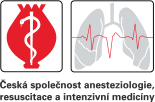Anest. intenziv. Med. 1999;10(5):210-216
The importance of routine evaluation of biochemical and clinical markers during long-term ventilatory support and difficult weaningArticles
- Klinika anesteziologie a resuscitace, Fakultní nemocnice Hradec Králové, přednosta MUDr. Vladimír Černý, Ph. D.
- 1 Ústav klinické biochemie a diagnostiky, Fakultní nemocnice Hradec Králové, přednosta doc. MUDr. Vladimír Palička, CSc.
Difficult weaning from ventilatory support is observed in almost one fourth of ventilated patients. Difficult weaning results in longer ICU stay, whilerepeated weaning trials can account for a respectable part of the whole ventilatory support time. The aim of the study was to evaluate selected clinicaland metabolic markers in patients with different duration of ventilatory support and weaning process. In 37 patients we prospectively monitoredfollowing parameters: albumin, pre-albumin, transferin, cholinesterase, CRP, ionized magnesium, phosphorus, myoglobin urine level, and selectedclinical parameters (APACHE II, SOFA, Goris score, presence of septic shock, corticoid therapy). According to the length of weaning, patients weredivided into two groups: group S, weaning period < days, n = 15 group; L, weaning period ł 3 days, n = 22. Patients in the L group had significantlymore advanced age, longer weaning period and total ventilatory support duration; non-significant changes were observed in SOFA score and Gorisscore. We did not observe significant changes in biochemical markers, which makes its routine monitoring in patients requiring prolonged ventilatorysupport dubious.
Keywords: mechanical ventilation; weaning from ventilator; multiorgan dysfunction system; biochemical monitoring; nutrition status
Published: October 1, 1999 Show citation
| ACS | AIP | APA | ASA | Harvard | Chicago | Chicago Notes | IEEE | ISO690 | MLA | NLM | Turabian | Vancouver |




